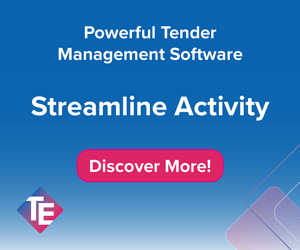Companies sometimes ask proposal manager candidates for their win rates—the ratio of business bid to business won—as a metric on which to base their hiring decision. However, there are simply too many variables in procurement processes, people, resources, and competition to glean some special trait for managing “winning” proposals. Plus, hiring a proposal manager based on win rate—all other qualities being equal—isn’t going to make it rain.
Every proposal is simply a bid for business that may be won, based on a number of criteria and considerations. What works in one proposal may not work in the next. To expect that a proposal manager’s win rate is a predictor of future contract wins is like wearing your lucky shirt to a ballgame because it helps your team win. And the pressure that expectation puts on the proposal manager would not be fair to any employee.
To expect that a proposal manager’s win rate is a predictor of future contract wins is like wearing your lucky shirt to a ballgame because it helps your team win.
But ensuring that every proposal is compliant, complete, clear, and compelling—in other words, winnable—is a replicable effort. Good proposal managers can produce winnable proposals every time, because they possess skills and competencies that foster teamwork, make up for resource deficits, extract quality work from people who already have demanding jobs, and create a respectful, goal-oriented environment.
Making the Hiring Decision
Consider the difference between two midcareer proposal managers who have managed a similar number of proposals with similar values. One has risen through the ranks within one company over several years, and she has a relatively high win rate. The other has worked for several small businesses over the same period and has a lower win rate. How would you decide who to hire?
Assuming equivalent levels of education and experience, it’s tempting to choose candidate No. 1 because she wins more. During the interview, she tells you war stories about delivering proposals with five minutes to spare, buying her team pizza at midnight to keep them working to deadline, and paying a local printshop a premium to rush proposal production because the copier broke down.
When you check LinkedIn, you notice candidate No. 2 has many testimonials from former employers and peers about his deft application of new technologies to save bid and proposal costs, an ability to foster effective teamwork, and a broad knowledge of capture and proposal strategies. Which candidate looks better now?
Rather than win rates, companies should focus on hiring or developing professionals who have the skills and competencies to develop winnable proposals.
Past Results, Future Performance
Rather than win rates, companies should focus on hiring or developing professionals who have the skills and competencies to develop winnable proposals. These may include:
- Technical training and certification by a professional association such as APMP.
- Analytical, strategic, and tactical skills to creatively comply with each RFP’s unique requirements.
- Training in leadership, team building, effective communication, and other people-oriented competencies.
- Understanding of the strengths and weaknesses of tools and technologies as applied to specific bids.
- A passion for sustaining a positive, focused team culture throughout the effort.
- Respect for teammates’ time, knowledge, and contributions, as well as their personal obligations.
- Flexibility, confidence, optimism, and humor—which may not be measurable but are easily discerned in the interview process.
A company’s investment in proposal managers who meet these criteria will more than pay for itself in the long run. Only winnable proposals win business, and winnable proposals can be produced again and again.
Melisa Paye is a Baltimore, Maryland-based senior proposal manager for global infrastructure firm AECOM. She can be reached at mpmws@outlook.com.



Join the Conversation